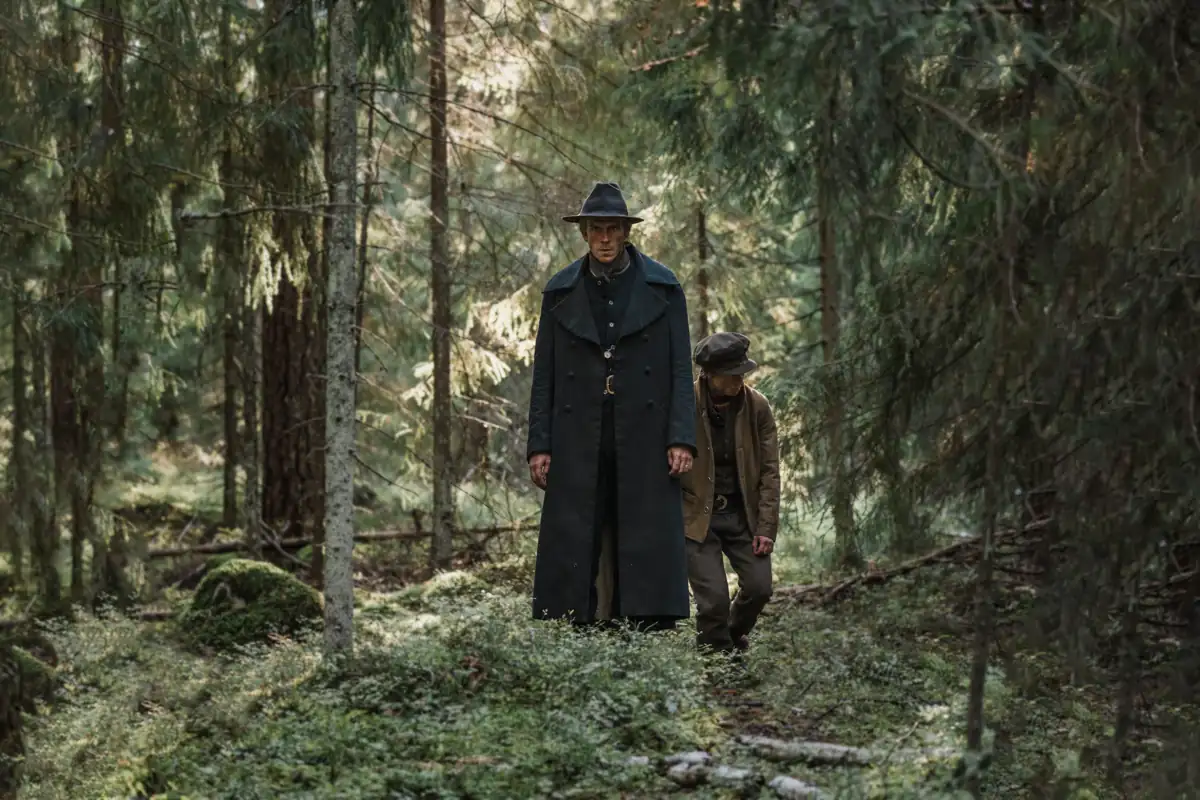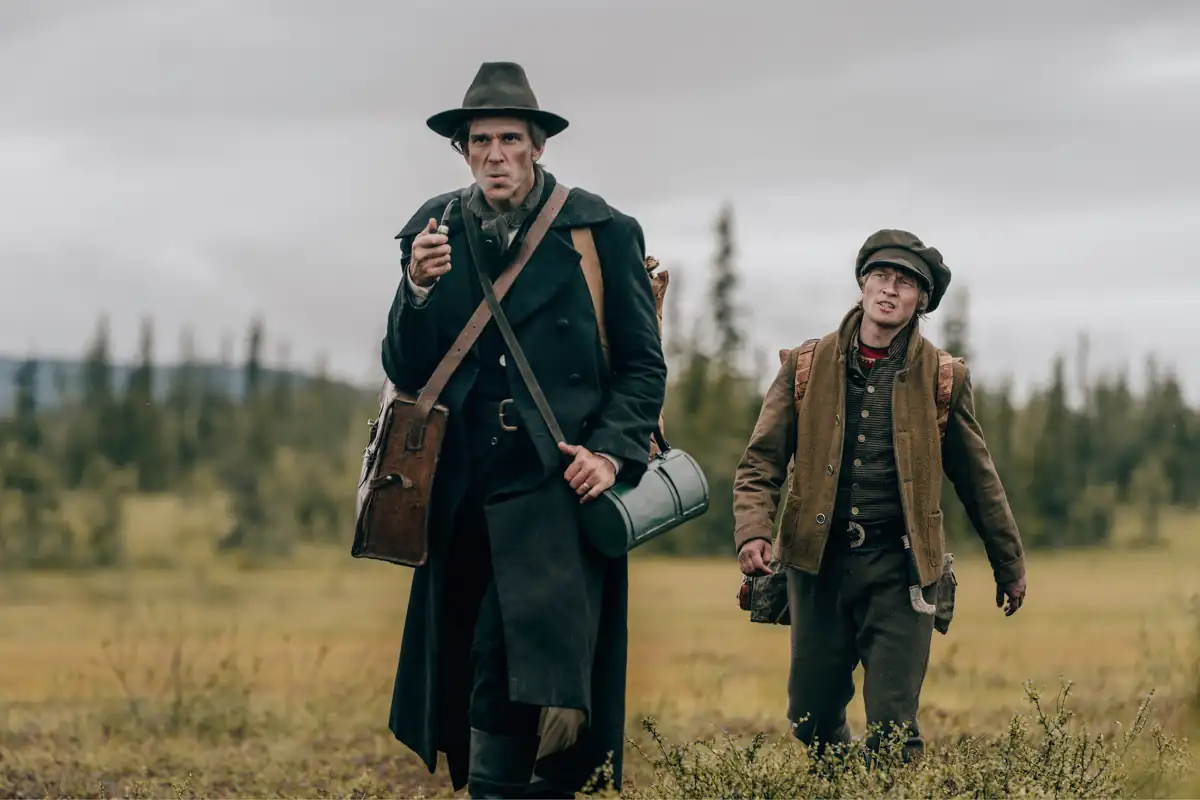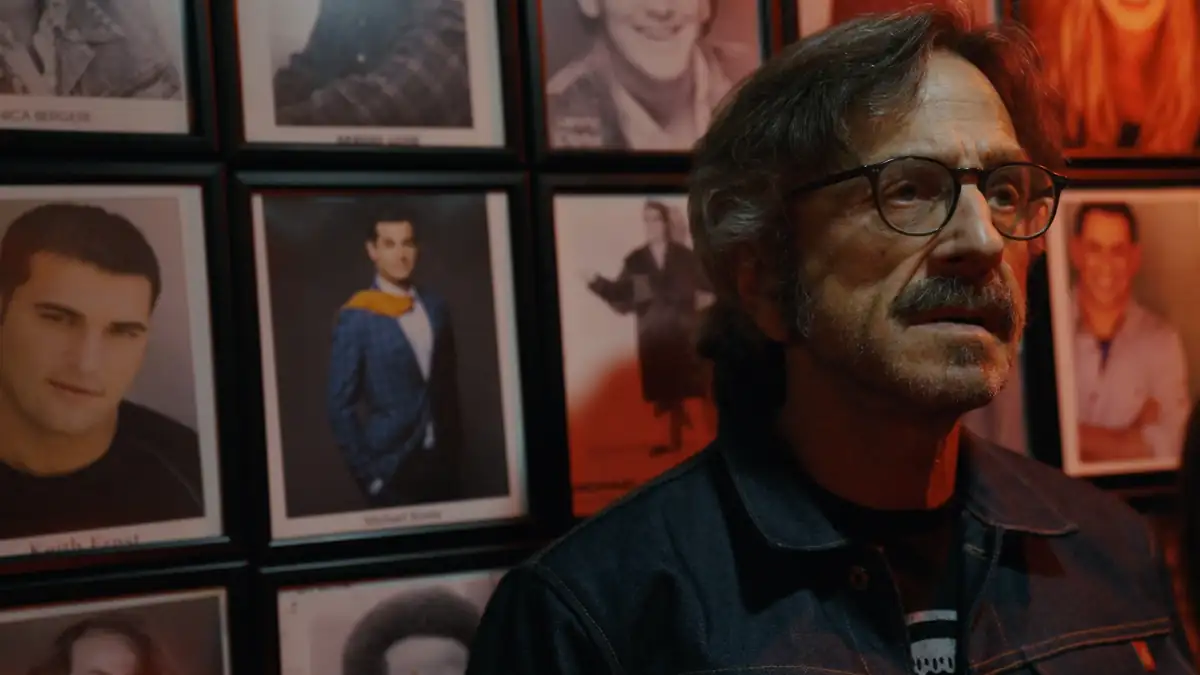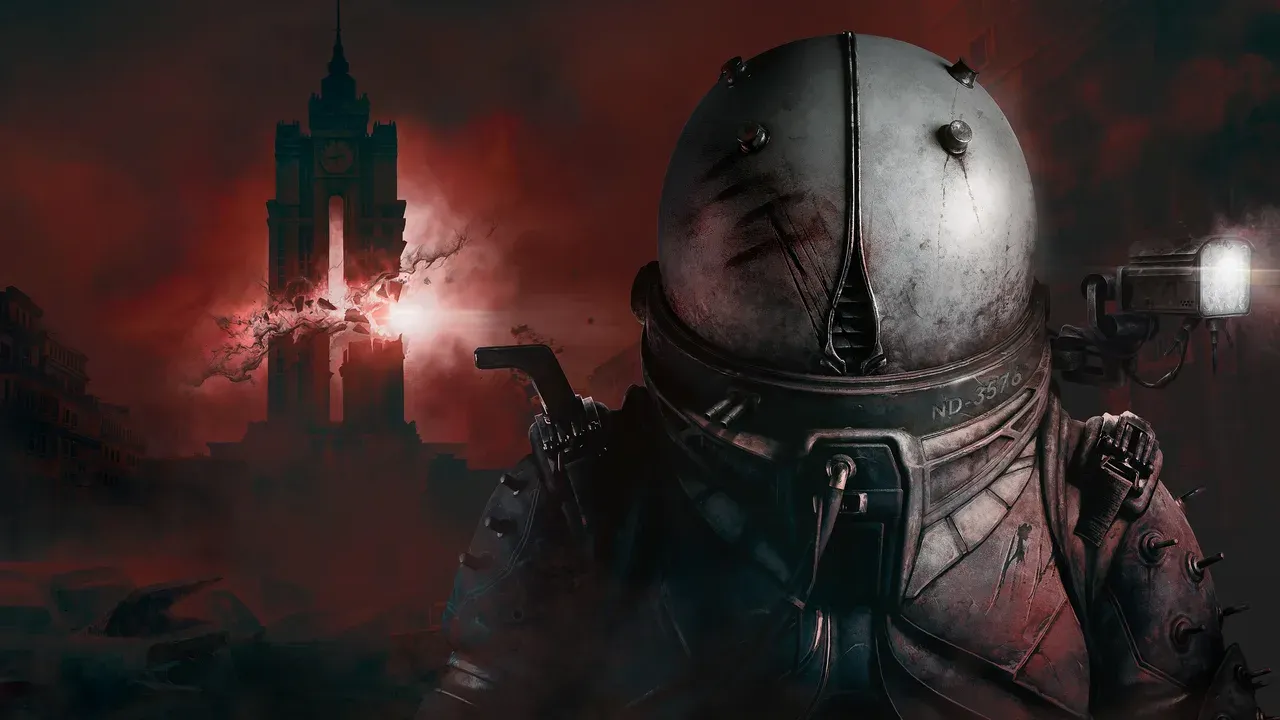I don’t like True Crime series or books. I think they’re exploitative and often downright cruel. They’re misery tourism designed to feed off on the pain of others to provide a quick rush for those doing the reading. While there is a subset of True Crime fans who cross the line into Citizen Detectives, potentially uncovering things that investigations missed the first time around, the mainstream emphasis is still on the distasteful allure of the morbid.
But if you, dear reader, are a fan of them, fear not: you will enjoy I’LL BE GONE IN THE DARK. And that’s fine, it’s by all accounts a well directed, handsomely presented big budget recreation of the novel. Whether or not this can cover up the inherent problems in what is being presented is another matter entirely, one that you and I will have to disagree on.

Based on the true crime book by Michelle McNamara, published posthumously after her untimely death in 2017, I’LL BE GONE IN THE DARK is in part personal portrait, mystery thriller, and something else entirely. It’s a sprawling, messy, and frequently off-putting collection of misery that occasionally reaches something profound in depicting the power of closure. This is not a documentary, despite the semblance of interviews and historical footage. Events are edited to play out like a TV movie, while others are fictionalized entirely. One event is particularly ghoulish in dealing with the death of McNamara by playing out the panicked 911 call from her panicked spouse. Either it’s the real thing and the series dissolves into cheap sensationalization, or it’s a recreation, which to me feels worse.
It’s that reality TV aspect of the presentation that ultimately makes it feel far less than the sum of its parts.
From the TRUE DETECTIVE style opening credits to the droning David Fincher-esque soundtrack, each aspect of this true crime thriller is meant to titillate in some way. It wants the viewer to be wrapped up in the chase that by the time it actually sits down with the victims the whole thing suffers from tonal whiplash. By attempting to play itself as both a biopic and one of the E! specials McNamara was fond of, the series instead does a disservice to both.
At this point the hunt for the Golden State Killer (a title McNamara coined) is synonymous with her book as it is with reality. To speak about the True Crime series inherently means that you speak about McNamara as well. The result is a double-edged sword, one that the producers of the series seem to silently acknowledge.
In tying the decades long investigation into a limited portrait of a person we do not and cannot know, the series ties itself into knots. McNamara’s portrayal is as fictional as anything in CSI, despite the insistence of the production that everything happened this way. Either you go with the story, creating a memory of something designed implicitly to elicit a reaction, or risk disrespecting the memory of a dead person.
The series’ worst offense is the deep dive into McNamara’s belongings. We see her diaries, poems, text messages and emails. Things that are deeply personal. Now they’re served to an audience hungry for more drama and gossip, designed to provoke an emotional response at any cost.
McNamara’s story is tragic in all its complexity, yet its depiction takes over the documentary in a way that diminishes the whole. Old diaries provide context to her obsessiveness, but the attempts to tie them in even remotely to what the victims of the Golden State Killer went through come off as reaching.
All of this understandably lionizes McNamara and her work. I’LL BE GONE IN THE DARK is as much true crime as it is a process of grieving for her family and friends. But it’s looking for closure in public by tying itself into the decades-long process of other families. Authorities reported that while McNamara’s work drove new attention to the long dormant case, it brought forth no new evidence to aid in the catching of the serial killer. Even her case files, which her colleagues say are the most thorough of all citizen detectives, hold no mention of the real suspect.
Naturally we want there to be an ultimate triumph, anyone with a heart does. But the story leaves a nagging doubt that all this would have happened even without McNamara’s book, and it’s an aspect of the big picture the series absolutely does not want to touch.
The stories of the victims are the most compelling and important parts. Seeing them find peace provides the series with context and heart that is otherwise oddly missing. As McNamara dove headfirst into the world of gorehounds and misery enthusiasts, she also wound up providing closure to the victims themselves. These moments, especially where the survivors talk about who they could have been had their attacks never happened, are overwhelming in their portrayal. It’s the one aspect where the series understands to step back and let the enormity of what happened speak for itself.
Had the entire series focused on this aspect alone it would be a vital and important docudrama about the importance of justice being served, even when it comes too late. The dialogue between those who survived, the families of those that didn’t, and those who were helpless to prevent these atrocities from happening are all incredibly hard viewing. The comparisons how people deal with their trauma is fascinating and revealing, and it feels like a far more interesting topic than what the actual focus is on.
Unlike the revelatory and heartbreaking ATLANTA’S MISSING AND MURDERED, I’LL BE GONE IN THE DARK is more about giving the illusion of danger, draped with a hint of excitement, while rarely truly showcasing the devastation beyond the world of would-be-detectives.

Presented episodically, the series suffers from serious bloat despite feeling superficial regarding the massive research McNamara put into her book. Again leaning heavily on the reality TV format, each episode ends with a weekly hook hoping to bring back viewers again like they were watching an unfolding procedural.
One minute we’re listening to a harrowing first person account of an attack that left a life devastated, the next we’re hearing highly personal phone calls between McNamara and her husband, the comedian Patton Oswalt. An episode dealing with McNamara’s increasing use of prescription drugs to manage her sleeplessness and mania even alludes to Oswalt being an absent spouse; something that’s never brought up again, but surely leaves an emotional footnote. The story the series wants to tell is that this investigation is what drove McNamara to her death, or at least that the search for the truth contributed to it.
These asides, like much of the series not dealing directly with the unraveling of the crime, feel exploitative and needless. Oswalt at one point talks about old poetry and notes he found after McNamara’s passing as something he wants to pass onto their daughter. So that one day in the future she can see what her mother was like. As he tells us this, images of the poetry and notes flash on the screen. Millions around the world will now see this private record of a person’s memory before her daughter.
It’s undeniable that director Liz Garbus (WHAT HAPPENED, MISS SIMONE?) is a talented filmmaker who knows how to capture moments in vivid detail. But I’m uncertain whether or not those talents have been put to good use here. I’LL BE GONE IN THE DARK never settles on any one thing, whether or not that thing is tone or topic. Instead it is a little bit of everything, none of which truly as captivating as just letting people tell their story.
Sometimes less just is more. Especially when it comes to tragedy.













